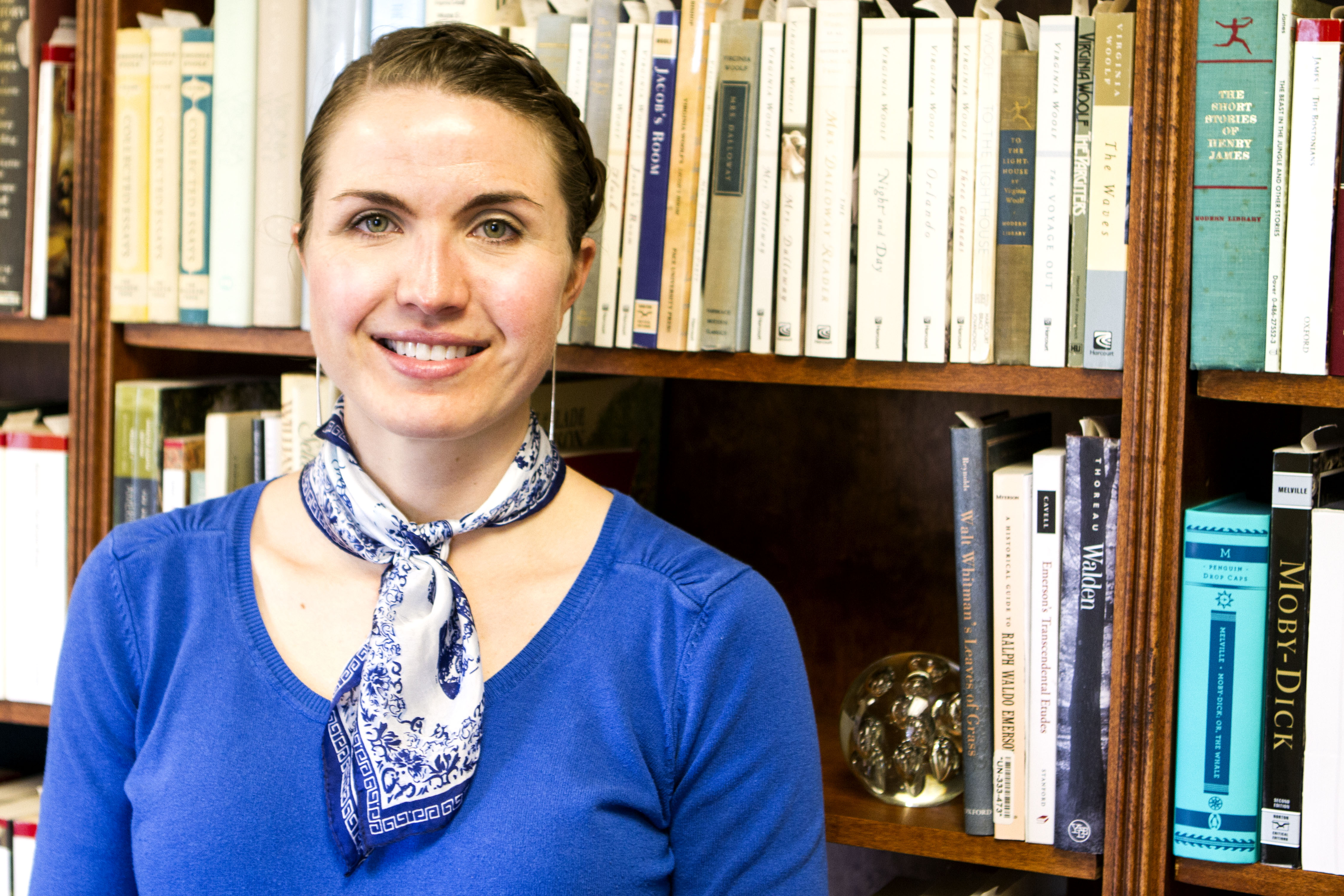By Tori Hook, Staff Writer
“Difficult literature [is] a kind of stepping stone for other parts of life [people] might experience,” said Dr. Erin Penner, Assistant Professor of American Literature. At a liberal arts school like Asbury, few would argue against the importance of literature. However, Penner takes this claim to new heights, often teaching emotionally and formally difficult material in her classes. Though many students wonder why Penner chooses to teach such controversial books, her no-holds-barred approach is no surprise when students discover that her graduate school focus was on the literature of grief, mourning and violence. While these emphases are certainly out of the ordinary, Penner believes that they have not only shaped her as a person and as a professor, but that they also create an unparalleled community.
Penner admitted that her young years affected her gravitation toward literature of grief and mourning, but only because she “had a very happy childhood.” She shrugged, smiled unabashedly, and described her parents as “very much alive,” emphasizing that she “grew up with happy, healthy young people in a stable marriage in a stable life.” With the exception of “the usual sort of juvenile troubles,” Penner hasn’t experienced any real tragedies, which she argues has made her both curious and bold —“though I hope not rude,” she added with a sheepish grin. She even went so far as to say that her own happy childhood allows her to look at difficult literature in an “unaffected” way. She compared people’s responses to grief to their responses to her pregnancy. “When I was pregnant,” she started, chuckling slightly, “my friends who had already been pregnant would treat me as they would have wanted to be treated. Their response[s] [were] shaped by their own experiences.” Those who hadn’t experienced pregnancy were free to simply observe and interpret the situation with much less personal bias. “I find that grief works a little bit like that for a lot of people,” Penner explained. “They are shaped in their response[s] by their own grief and, because I don’t have that, I just keep asking questions.”
Though Penner was interested in grief and mourning as subjects of study in and of themselves, it was “the form of the books” that first caught her attention. “Literature has always dealt with hard things,” she pointed out, “but contemporary literature has gone pretty gritty.” Penner’s focus on modernism led her to both emotionally and formally difficult literature. The form of modern literature often reflects the raw and immediate context of hardship. “If I drop a bomb into the middle of your life,” Penner explained animatedly, “it’s not going to look the same or feel the same.” Though Penner later moved on to study the subjects of grief and mourning rather than just the modernist form, she admitted that “it was more through form than feeling at first.”
Many students have trouble seeing a silver lining in the dark plotlines of the books Penner assigns for her English classes, but she encourages them to try “to see the delight and the beauty that the author is trying to pull out of a very difficult situation.” She passionately contended for the “little pieces like language or emotion or beauty or structure. They’re not insignificant in the face of grief.” If students never read anything hard, they’re “never driven to seek out that community” of people who see differently. This community of other readers, professors and even the literature itself is one that Penner holds in high regard. “We can start to see all of the things that are around us,” Penner emphasized. “My job is to make a stand in that difficult literature, that pool of water, even though we’re uncomfortable. You just have to stand there long enough to see something other than the fact that our feet are wet.”
It’s not likely that grief and mourning will be many students’ favorite literary subjects, but with enthusiastic professors like Dr. Erin Penner in the classroom, more students will “stand in the water just a little bit longer” and find the one-of-a-kind community built out of difficult literature.


